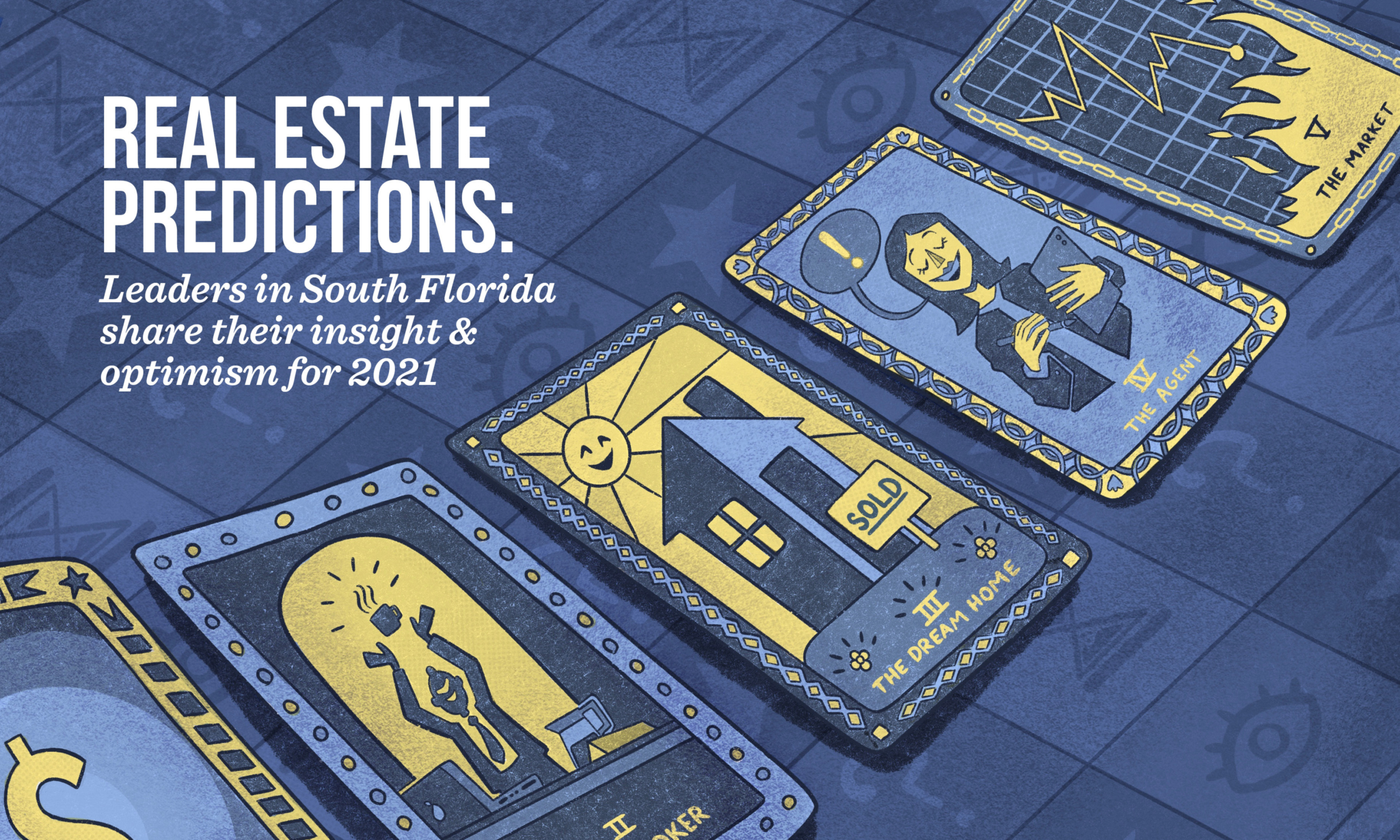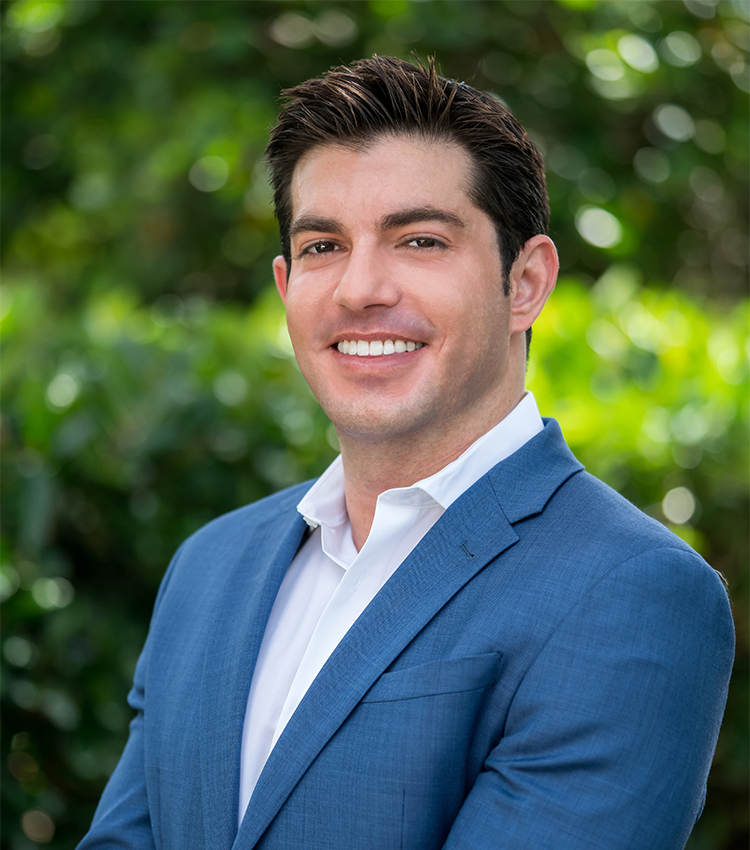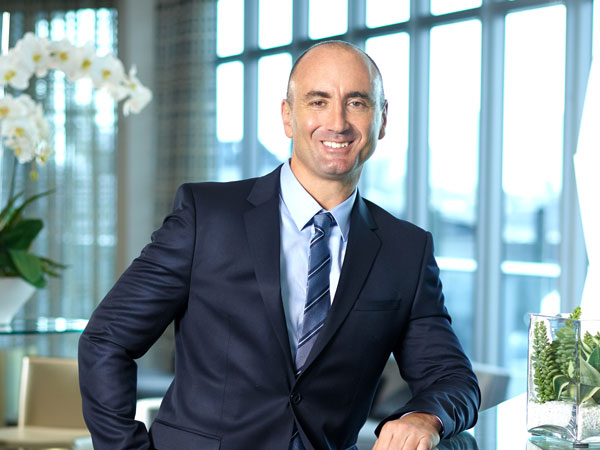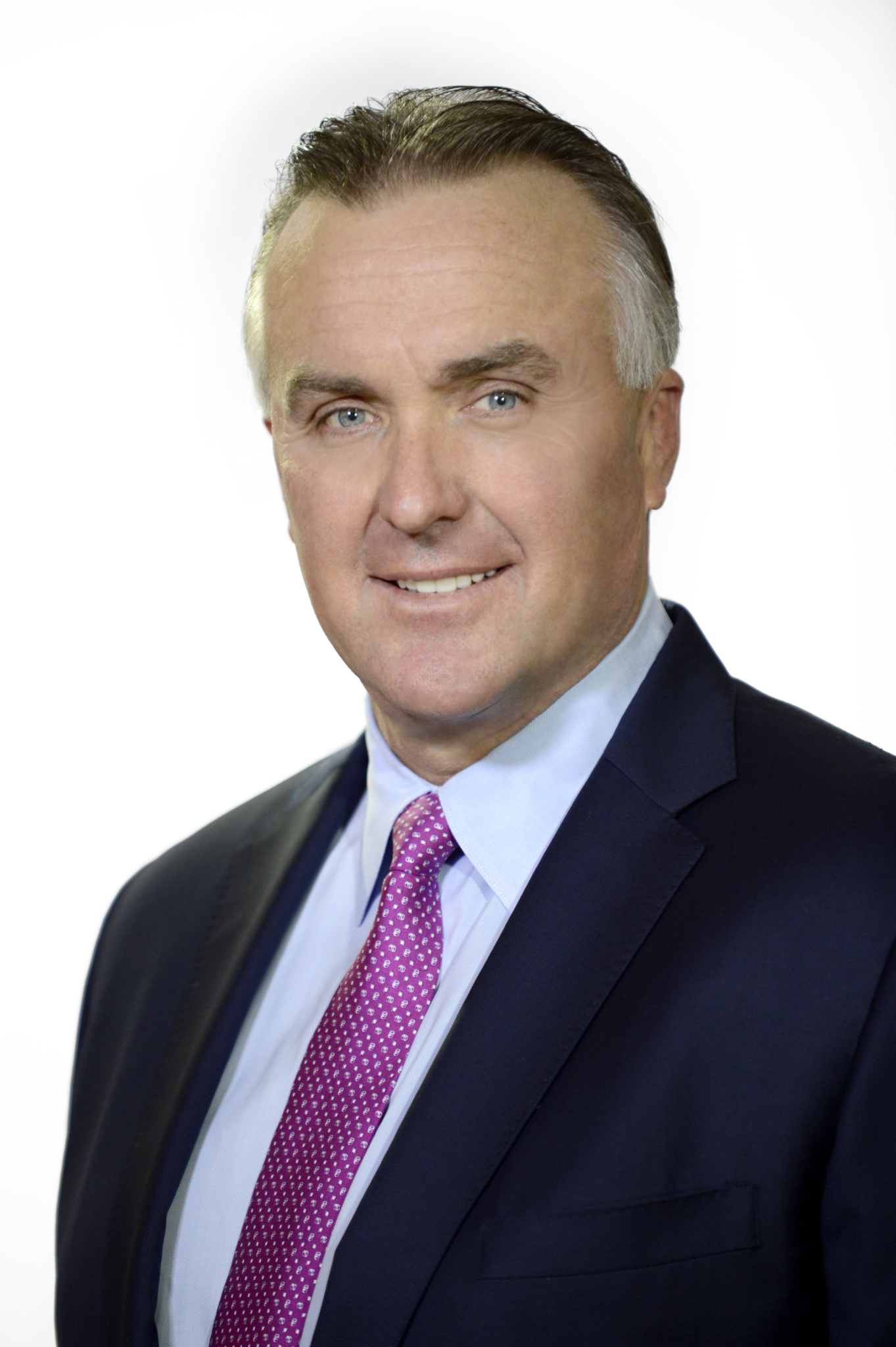
Happy days are here again in 2021? With a vaccine making its way across the globe at lightening speed, there appears to be a light at the end of the pandemic tunnel, but what does the future hold for residential real estate? We spoke with some of the biggest names in South Florida real estate to get their take on 2021.
Our panel of experts this year includes:
- Doreen Jaworski, co-president, TRG Management
- Teo Palmieri, broker/owner, Elite Ocean View Realty
- Brian Pearl, principal agent. The Pearl Antonacci Group, Compass
- Craig Studnicky, co-founder and CEO of International Sales Group and RelatedISG
- Mark Vitner, managing director and senior economist, Wells Fargo & Company
We’ve all been weathering the changes that COVID-19 brought into our lives. What revelations have you learned about your business over the last year? Will any of this apply to the way you do business in the future?

Doreen Jaworski
Doreen Jaworski, co-president, TRG Management: The way real estate is leased will never be the same, but I feel it’s for the best and I’m thankful that technology has allowed TRG Management to conduct service at the same level as before the pandemic. We’ve had to push this technology to the limit to keep our business going, but we’re now at a place that may have taken two or three years to get to. We’re way ahead of where we would’ve been in a ‘normal’ 2020, but the benefit is being able to refine and streamline our use of technology and make it better for the future.
Teo Palmieri, broker/owner, Elite Ocean View Realty: Yes absolutely, one of the things that has changed our lives is how we can easily meet virtually through a Zoom meeting without spending time in traffic.
Brian Pearl, principal agent, Compass: I’ve learned that we are able to still conduct a healthy (pun intended) business without being in the office and without having to always be the one who shows our own listings. We had an incredibly busy March, which is when the lockdown was initiated in Palm Beach County. There were a few days of wondering how we were going to close pending transactions if we couldn’t be around other people. But we adapted and safely closed several million dollars that same month. With Zoom and similar software, we were able to continue our weekly team meetings, which were previously done in the office. We even hired a new agent during this pandemic and trained him almost 100% virtually! So, while it has not been a comfortable situation, it’s doable.
Craig Studnicky, co-founder and CEO of International Sales Group and RelatedISG: COVID-19 changed the way people think about real estate and made the words “social distancing” part of everyone’s vocabulary. Potential homebuyers’ priorities shifted, and single-family homes became incredibly popular because it’s easier to social distance in a single-family home than a shared condo building. The proof is in the numbers and in South Florida we’re seeing a record 12-year low in single-family home inventory. Many brokerages, including RelatedISG, had to pivot efforts and adopt virtual methods of showing homes and conducting business. However, we are slowly beginning to return to the traditional model of showing homes in person with COVID-19-safe precautions.
Assuming we are still dealing with the pandemic for many months to come, what changes should we expect in the Houston real estate market in 2021? If a vaccine is distributed next year, what impact will that have on the real estate market?
Jaworski: Miami’s real estate market will continue to get propped up by the pandemic and tax-induced migration. TRG Management has never been as busy as we have during the pandemic.

Brian Pearl
Pearl: After going through the last market crash in 2006 — then again in 2008 — I could have sworn that this was going to be the tipping point for South Florida’s real estate market. In 2006, it was hurricane Wilma that tipped the market into a downward spiral and then banks failing in 2007 and 2008 brought the crash nationwide. I really thought that COVID was going to be 2020’s Hurricane Wilma. Luckily, I was wrong, but I still have a feeling we’re going to see a correction in the market. South Florida isn’t affordable for many people at this point and interest rates being so low isn’t sustainable for the long run. Inventory is at an all-time low in Palm Beach County and bidding wars are getting the best of a lot of homebuyers who are just deciding to rent after losing five, six, seven homes to higher or better offers. Unless we see an influx of inventory, we’re in trouble. It’s a great market for sellers, but not such a great market for buyers.
Mark Vitner, managing director and senior economist, Wells Fargo & Company: Hopefully, the pandemic will be winding down during the first half of 2021. That is what we are expecting. We have confidence in the vaccines and the ability of our healthcare sector to administer them. My sense is that much of the talk about a paradigm shift away from city living is overblown. Safety has become a more important concern for those living in the city and the pandemic has made people more aware of how much life can change in urban areas when everyone works from home and does not go out at night. That is not normal, however, and we expect the overwhelming majority of office work to continue to be done in office buildings and downtown areas will remain the hub of metro areas’ creative workforce. Residential real estate will need to pay greater attention to features that enhance security, provide opportunities to social distance (even after the pandemic) and do so in a way that makes people comfortable.
Studnicky: In the first six months of 2021, I believe we’ll continue to see a lot of the same trends from 2020. Remote workers now have the freedom to relocate, so we’ll continue to see the shift away from larger cities and to the suburbs in the early months of 2021. However, as the Pzifer vaccine becomes widely available, we’ll see an about-face in the market. Once people become more comfortable returning to cities and living in condos, they’re going to find an undervalued condo market and lower-than-ever mortgage rates in major cities. In 2020, real estate was all about the success of the single-family home, but in late 2021, real estate will be all about the success of condos.
Do you think the trend of homebuyers leaving cities for suburban areas is real, and if so, do you think it will continue in 2021? Why?
Jaworski: Our properties have been beneficiaries of the exodus out of dense urban cores. For example, we had several tenants from areas like NYC rent our suburban product line sight unseen. However, on the flip side, we also have prospects moving into our high-rises who say lifestyle and location are still just as important as they were pre-pandemic.
Palmieri: In Miami, we see many buyers coming from the Northeast, places like New York, Chicago and Boston. They realize they can work from home, get more for the money here in South Florida and take advantage of the nice whether we have year-round.
Pearl: I think it was a knee-jerk reaction, to be honest. It may be a trend that continues throughout the year, but in general, people will get back to life as they were. I feel like people who like living in the city will continue to do so and those who like suburban settings will go that route.

Mark Vitner
Vitner: The Covid-19 pandemic came at a time when the move back to the city was losing momentum in some markets. The driver, however, was the rising number of millennials reaching a point of their lives that they were focusing on starting a family. The pandemic may have accelerated this shift, but more importantly it choked off the supply of new renters and new buyers. I expect the demand for urban properties to increase in areas that have a wide variety of amenities and diverse mix of employers. Urban areas that attract creative industries in the tech sector, new media, financial services and high-end professional services will continue to attract a strong following. Globally connected cities may take a little longer to come back because international travel will take longer to recover.
Studnicky: Yes, the trend of homebuyers leaving cities has been very real and the numbers speak to this migration. RelatedISG data saw that in Q2 of this year, single-family homes made up 85% of all transactions as homebuyers left cities for suburban areas. During the quarantine, people realized the need for more space and weren’t comfortable in condo buildings with shared spaces like elevators, hallways and lobbies. The demand for single-family homes during the pandemic was so strong that there is now less than 1% of single-family home inventory left across Miami, Broward and Palm Beach Counties. However, we began to see the return of the condo market in late 2020 and will continue to see the condo market bounce back in 2021. The condo market has experienced a surge in sales during Q3 and Q4 of 2020, with sales up 11% compared to Q1 and Q2. We’ll continue to see a surge in condo market activity in 2021 as homebuyers grow more comfortable reentering condo buildings.
All things considered, do you expect your 2021 business to thrive, decline or remain stable? Why?
Jaworski: Considering how well business has been throughout the pandemic, we expect to continue on this upward trajectory.
Palmieri: Business wise, it all depends on how dedicated you are to the business. That said, we are expecting our business to grow exponentially as it did in the past years due to our client’s loyalty and the referrals we constantly receive.
Pearl: I do think our business is going to thrive in 2021 as it did in 2020. We have a steady and loyal base of clients that we can always count on and we have a solid lead generation plan that’s been proven for several years now, so as long as we stay on track our business will do the same. Barring any market disruptions of course; but then we will just adapt and change.
Studnicky: Business will continue to thrive in 2021 and will largely be driven by the continuing migration from the Northeast. COVID-19 acted as an accelerator for homebuyers contemplating the move from Northeastern states to Florida. Working remotely opened up endless relocation possibilities and many people were drawn to Florida due to the favorable climate, taxes and lifestyle. We’ve been seeing this migration to Florida since the passage of the 2017 Tax Reform Act and will continue to see this migration in 2021 after President-Elect Biden is sworn into office.
What will be the biggest challenges and opportunities for agents, lenders and brokers in 2021?
Jaworski: One of the biggest opportunities is the use of technology and digital tools to best serve current and future residents. For example, Related is continuing to develop and enhance its app-based technology in partnership with Livly to make the rental experience that much better, from the very first virtual tour, to remote signing and setting up online and after move-in payments, enjoying virtual programming, putting in a service request, managing deliveries, etc. It’s really a one-stop-shop, and I believe this is the future.
Palmieri: The biggest challenge right now is trying to get used to the “new normal,” FaceTime showings, virtual tours, live showings wearing mask, etc.

Teo Palmieri
Pearl: I think the biggest challenge right now is the unknown, the fact that we’re waiting for a vaccine and still have no idea how effective it will be and when it will be distributed. If that takes until March to happen, we’re going to likely see some people still sitting on the fence. I believe that’s a primary reason for the lack of inventory — when COVID hit, we saw a drop in inventory from sellers taking their homes off the market in fear of the virus. Opportunities for agents, lenders, and brokers are always there if you know where to look for them. The best advice I’ve ever received? When everyone is running away from something, that’s the time to run towards it and seek opportunity. Should there be a market correction, there are investors sitting on the sidelines. I see that as a major opportunity that could happen in the next year.
Studnicky: The biggest challenges in real estate in 2021 will be appraisals for single-family homes. Because inventory is dropping and prices are soaring, market prices are changing at a faster rate than ever before. Appraisals can make it appear that the buyer overpaid for their home, but the price they paid at the time of purchase was actually on par with market value at the time. Appraisers will need to pay attention to the market and price indicators like low inventory and high demand.
How do you believe the markets will differ under a Biden presidency, if any?
Pearl: Based on his housing plans (which don’t necessarily mean they will come to fruition; as most presidents’ plans are just that, plans) there should be more affordable housing built which isn’t a bad thing; I see that there are many areas in Palm Beach County’s west side that are being developed by Minto and D.R. Horton which are more affordable than those further east. I think that will continue to be something that is important for middle-class families to have.
Vitner: I think the financial markets will like the Biden presidency — much more if the Republicans maintain control of the senate. A Republican Senate would work as a good check to the more progressive wing of the Democrat party and guard against big changes to the tax system. I doubt that caps on the deductions for mortgage interest and local property taxes will be removed, which will keep lower tax states like Florida, Tennessee and Texas at the top of the list of destinations for people fleeing high tax states in the Northeast. The Biden Administration is also expected to push for more investment in affordable housing and possibly push for a first-time homebuyer tax credit, or some other type of incentive.
Studnicky: Regional markets will see the effects of the Biden presidency as homeowners continue to flee the Northeast for Florida. The cornerstone of Biden’s campaign was the promise of raising federal taxes, making it even more expensive to live in Northeast states like New Jersey, New York and Connecticut. Biden’s presidency will drive even more people to Florida and for anyone currently contemplating making the move, Biden being sworn into office will accelerate their decision to relocate.
Where will the hottest communities and neighborhoods be in 2021?
Palmieri: Bal Harbour, Miami Beach, Coral Gables and Coconut Grove.
Pearl: As far as South Florida, I think Delray Beach and Boca Raton will continue being hot spots. I do foresee downtown Lake Worth being the next up-and-coming downtown area, similar to what happened in Delray 10 to 15 years ago, where it’s ripe for new trendy restaurants, shops, and condos to come and transform the run-down area. The layout of the town is similar to Delray. Also, West Palm Beach has undergone a tremendous rejuvenation this past year with the new Rosemary Square and Kravitz Center being renovated, so I think there is a lot of value in those properties that have been undervalued for years. Fort Lauderdale is having a rough time with the infrastructure and I’ve personally seen and helped buyers from there move up to Palm Beach County. I hope they get it together, but it seems like it could be an ongoing problem through 2021 for the real estate market.

Craig Studnicky
Studnicky: While all neighborhoods in South Florida are different and have different attractors, in 2020, Palm Beach was the hottest area for single-family home sales by number of transactions. There wasn’t a huge differentiation across transaction numbers in Miami, Broward and Palm Beach, but Palm Beach was the frontrunner. However, now that we’re beginning to see a shift toward condos and will continue to see this in 2021, we’ll likely see the downtown areas of Fort Lauderdale and Miami heat up as people come flocking back to cities. We’ll also see Latin American buyers in these central areas because of the lower dollar.
Do you think consumers will get used to virtual showings enough to keep them as a regular practice?
Palmieri: No, the personal visit will always remain the most effective way to buy and sell a property. In some circumstances of course, buyers will buy anyway even if virtual showings are the only option and they don’t have a friend or family member to go see the property
Pearl: I don’t think so. Consumers need to smell, feel, and experience a home by physically walking through it. We realized that early on during the pandemic when we offered virtual showings to everyone and the ones who most took advantage of them were the people out-of-state who physically couldn’t be here. Local consumers still opted for the in-person showings even if it meant putting on a mask, gloves, and whatever else made them feel safe. When you’re buying a home to live in, in-person showings are here to stay, but I think virtual showings are great for investors and even second home buyers so we will be continuing to implement them in every one of our listings.
Studnicky: While virtual showings were popular during the pandemic, nothing compares to the experience of viewing a home in person. It’s impossible to create the same experience viewing a home virtually and I believe that as the industry continues to adopt safe precautions, we’ll see a return to showing homes in person. Homebuyers like to actually visit the property and be able to open the cabinets, see it with their own eyes and get an idea of how the home is laid out spatially and how it feels when they visit. Many companies have transitioned to virtual ways of conducting business but for real estate, in-person showings will continue to remain the best way to show a home.
Do you think the number of new people getting real estate licenses will grow in 2021?
Palmieri: Yes, we are already experiencing a high volume of applications. New agents will enter the market and will make it more competitive if they adhere to the high standards best agents follow
Pearl: I hope not! The best thing that happened during the last market downturn was that it filtered out the part-timers and newbies. There are way too many agents who feel like having a social media presence and watching “Million Dollar Listing” is all they need to make it in this business, which may be the case in a healthy market, but I can’t wait to see how quickly that changes when the market isn’t so hot. Lasting in the real estate business and making a career out of it is very difficult; you have to treat it like a business and not just a job, which is where a lot of agents fail. It’s not cheap running a high performing real estate business. You need to spend money to make money if you’re going to last.
Studnicky: It’s very likely that we’ll see this in the new year. When the market heats up, people want to get involved and South Florida definitely is heating up. Throughout the pandemic, Florida has been a popular relocation destination and we’ll continue to see that in 2021. As people realize that the migration is continuing, many will want to get their real estate licenses and join in on the action.
Do you see a possible wave of foreclosures coming? If so, how will it impact the industry?
Vitner: Foreclosures are almost certain to increase once moratoriums are lifted, but the economy will be in a far better place by then and many of the issues driving foreclosures will be abating by then. The big worry about foreclosures is that they would surge a clog up the courts again and put a cloud over the housing market. We just do not see that happening. Bank balance sheets are much stronger today and balance sheets for upper middle and higher income households are also quite strong. Lower income households were hit much harder by this recession than any other in memory. The big worry is workforce housing, and that is where mortgage delinquencies and rent delinquencies have increased the most. It will be awfully hard for folks who have fallen way behind in their mortgage or owe mountains of back rent.
We’ve been told that interest rates will remain low, so what should homebuyers be watching for regarding mortgages?
Vitner: The Federal Reserve has made it abundantly clear that they intend to continue buying treasury securities and mortgage-back bonds well into the future, which should keep mortgage interest rates near today’s extraordinarily low levels. Stronger economic growth will pull interest rates a little higher over the course of 2021. The lowest rates are likely to come earlier in the year, when the economy is likely to struggle a bit with the recent resurgence of COVID infections. Underwriting is likely to loosen up a little bit toward the end of 2021 after economic growth has strengthened, unemployment has fallen and there is more visibility of the economic outlook for the U.S. and global economies.
What design changes, if any, have you incorporated into your floor plans because of the shift to work from home?
Jaworski: TRG Management is going above and beyond in making the shift to work-from-home not only tolerable, but enjoyable, and this goes well beyond offering flex work spaces in each of our floorplans and WiFi throughout our common areas. Our focus is on making the quality of life better for our residents, so we’re curating a robust calendar of events and programming — virtually and socially distanced — because we’re finding that residents are feeling isolated and missing that human connection. We’re offering coffee bars and break stations, food trucks for lunches and dinners (with delivery to units if preferable) and things like outdoor yoga and bootcamps so residents can get fresh air. After hours and weekends, we’re also doing things like cooking classes with groceries delivered, wine tastings, jazzy brunch, etc. so that our residents’ livelihoods don’t solely center around work. These are the big changes we’re focusing on now and through 2021.
What do you see happening with home prices in 2021?
Palmieri: The market should be very active and price should stay the same — flatted out with some peak in some areas. I predict prices to start to go up again in 2022.
Pearl: I think they will level off as more inventory comes to market after the new year. We hope to see more inventory hit the market in January to give people a shot at buying a home, because right now the lack of inventory is really concerning. If we don’t have an influx of inventory, I think prices will rise at an unsustainable pace which won’t lead to anything good. What goes up must come down and the higher they go, the farther they fall. I would hate to see a market crash like 2008 again, where prices dropped by 50-60% in some cases.
Vitner: Home prices are clearly headed higher. Demand will improve well ahead of any substantial additions to new supply. We do not expect a replay of the housing bubble, however. Speculative buying is still extremely limited, although many people are buying properties to rent them through online platforms like Airbnb.
Studnicky: Prices of single-family homes will likely continue to rise in 2021, driven by the incredibly low inventory across the tri-county area. Single-family home inventory is at a 12-year low with just 9,802 active listings across the tri-county area, the lowest amount of available inventory since the Great Recession of 2008, when the previous record was 9,871 active listings. RelatedISG’s mid-Q4 report found that at the current pace of sales, it’s likely sales will be 15% higher for single-family transactions in Q4 of this year than 2019.
What does South Florida need to do to address climate change?
Palmieri: We need to pay attention to the environment, and what the nature is telling us. Sometimes, we need to put aside the profit and not build or over build, especially in areas where the impact can be high.
Pearl: Good question; I wish I had the answer. I think that maintaining the infrastructure and seawalls is a start, but I don’t know if this is something that Miami or South Florida in general can fix at this point. I think that we’re going in the right direction as far as electric cars and lowering emissions and trying to stay “green,” but that isn’t on most people’s minds right now with this pandemic.
Studnicky: The topic of climate change was tabled as COVID-19 became the biggest issue in 2020, but as the vaccine is administered, South Florida will revisit climate change. Other areas will likely follow Miami Beach’s model of putting funds toward raising street and sidewalk levels and updating pump stations to drain excess water into Biscayne Bay. Because South Florida is such a popular destination and seeing so much demand, it’s impossible to not address issues like climate change.
